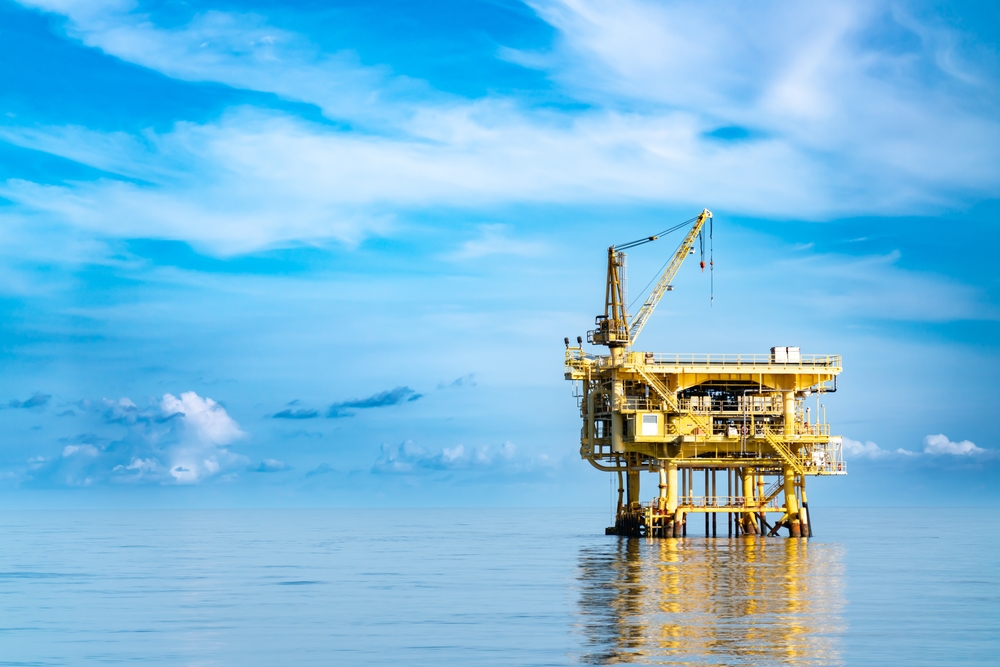
From managing reputation risks, crisis, insights to competitors, consumer sentiment and customer service feedback to operational improvements, leveraging on the best social intelligence or listening tools may benefit large oil & gas players.
Key takeaways:
- Social media listening tools remain a significant enabler that offer many functionalities, but stand-alone systems may not bring the most value to oil and gas industry unless paired with experienced manpower or industry experts.
- Real-time alerts, data-cleaning and custom reporting analysis becomes increasingly crucial to get the best consumer sentiment analysis to drive actionable insights for oil and gas companies.
- Outsourcing social media monitoring is the new trend in 2025 that brings the most value to oil and gas companies as they can focus on the core business activities.
- Managing reputation risks brings the most benefit to downstream oil and gas business to win and retain existing customers through proactive social media monitoring coupled with data-driven communication strategies.
Overview
In the high-risk, capital-intensive world of oil and gas, real-time data is not just about pipeline flows or seismic activity, but it’s also about monitoring public sentiment, public perception, geopolitical shifts, downstream customer feedback, brand loyalty, competitor insights and even on employee safety and well-being.
Data is arguably the new oil, but unfortunately it still requires a bit of time to process it into a meaningful asset despite its real-time monitoring functionalities.
“Social media monitoring and listening, once seen as a PR tool, have evolved into strategic instruments for upstream, midstream, and downstream oil and gas companies around the world” said Liz Kamaruddin, former managing director of FTI Consulting, who is a PR specialist with more than 30 years of experience in oil and gas.
Whether it’s Shell responding to climate activists, PETRONAS responding to a sudden gas pipe explosion, BP managing post-Deepwater Horizon fallout, or Chevron handling community grievances in real time, social media intelligence is reshaping how the industry navigates its most pressing challenges.
And whether you choose a social media tool at the very least, or partnering with an expert in data mining with communication advisory services, major oil and gas companies are taking steps to obtain short-term and long-term strategic views from social data.
Having sufficient volume of clean data from news and social media is helpful to oil and gas companies to monitor, listen and make strategic decisions. Hence setting the right requirements avoid operational nightmare in future.
According to a senior analyst from Berkshire Media, social media listening tool provides a pre-cursor or a leading indicator to future risks, anticipating the evolving consumer landscape and geopolitical dynamics. But this ideal best solution can only be achieved with the right amount of clean data that is relevant to the topic that you are monitoring.
90% of oil & gas companies prefer partnering with social media monitoring companies with consulting / advisory services rather than subscribing to AI-powered social media listening tools. The best value is derived from experienced analysts manning the system.
“The veracity and velocity of social data have helped many large oil & gas companies such as PETRONAS unlock more strategic actionable insights from social media listening tools. Advance sentiment analytics using social listening combines the best of LLMs, NLP and machine learning technologies to help PR executives to strengthen reputation and brand loyalty” said Shahid Shayaa, CEO and Founder of Berkshire Media.
“However, users need to know which social media listening tool is best suited for the oil and gas industry as most companies prefer outsourcing social media monitoring to 3rd parties backed by industry experts” he added, noting that “automated real-time AI-driven social media monitoring tools (system) may not be the best option for large national / international oil and gas companies due to noisy data”.
How important is social media monitoring for oil and gas companies?
The effectiveness and importance of social media monitoring for oil and gas industry players vary significantly depending on departments which are exposed to public-facing activities and customers. For instance, O&G upstream activities (eg: exploration and safety), downstream (retail marketing, digital team) and cross functional departments (quality and risk audit, corporate communications, stakeholder and corporate strategy) may benefit the most from social monitoring and risk monitoring activities.
Our assessment below will guide which department will gain the most benefit if you work for an oil and gas company. Traditionally, monitoring social media conversations via a central command center (usually from the HQ) may work effectively provided it is being handled by a reputable trusted social media monitoring agencies with a minimum of 10 years industry experience.
| Oil & Gas Areas | Key Departments / Subsidiaries | Importance of Social Media Monitoring (1–10) |
| Upstream | Exploration & Geoscience | 5 |
| Upstream | Drilling & Well Engineering | 4 |
| Upstream | Production Operations | 6 |
| Upstream | Reservoir Engineering | 2 |
| Upstream | Subsurface & Subsea Engineering | 3 |
| Upstream | Maintenance & Reliability | 5 |
| Upstream | Health, Safety & Environment (HSE) | 9 |
| Upstream | R&D and Technology Innovation | 5 |
| Upstream | Joint Venture & Government Relations | 7 |
| Downstream | Refining Operations | 5 |
| Downstream | Petrochemical Production | 4 |
| Downstream | Supply & Distribution | 6 |
| Downstream | Retail & Marketing (Fuel Stations, Loyalty, Branding) | 10 |
| Downstream | Digital & Customer Insights | 10 |
| Downstream | Commercial & Trading (Oil & Gas Products) | 4 |
| Downstream | Quality Assurance & Regulatory Compliance | 7 |
| Cross-functional | Legal & Contracts | 5 |
| Cross-functional | Finance & Treasury | 3 |
| Cross-functional | IT & Operational Technology (OT) | 4 |
| Cross-functional | Human Resources | 6 |
| Cross-functional | Corporate Strategy & Planning | 7 |
| Cross-functional | Sustainability / ESG | 9 |
| Cross-functional | Corporate Communications & Public Affairs | 10 |
| Cross-functional | Procurement & Supply Chain | 5 |
| Cross-functional | Internal Audit & Enterprise Risk Management | 6 |
Notes:
- 10 = Extremely high relevance (where public sentiment, customer feedback, or brand perception can directly affect operations or revenue)
- 1–3 = Low relevance (technical departments with minimal direct exposure to public discourse)
- 6–9 = High relevance, especially for departments involved in HSE, ESG, government relations, and crisis response
Beyond the importance and relevance, we shall deep-dive into how social listening tools can actually help large oil and gas companies with real life case studies on how these experiences helped the organization to better strengthen its reputation, brand loyalty to win more market share and instill public confidence for long term business sustainability.
Challenges and getting the best solution
But find the best social media monitoring companies with the right know-how and experience for oil and gas company often present new set of challenges for newcomers. The greatest pitfall is mining social data and understanding local contexts, sarcasm and dialects which are not readily available through AI-enabled social listening tools.
“Technology alone may not necessarily help oil and gas companies as part of its digitalization exercise.” said former Accenture consultant, Shahid Shayaa who spent years developing bespoke custom media monitoring solutions for clients.
The best social media companies use multiple tools, data-cleaning technology, proactive alerts and bespoke custom reporting to help oil and gas companies to gain that competitive edge. And it is a highly complex task for most service providers.
Ranking alongside Meltwater and Talkwalker, Berkshire Media is amongst the top social media monitoring companies that specializes in oil and gas industry with more than 12 years of industry experience. The company offers a wide range of social media monitoring services which include monitoring daily issues, reputation risks, public sentiment and perception for its clients – which is far beyond what tool (system) provider can offer.
Using data-driven approaches and a combination of AI-driven/human-assisted machine learning coupled with communication advisory services, companies such as Berkshire Media retains its position as the best in social media monitoring for oil and gas companies to retain its competitive edge by analyzing customer and public perception across 30 different topics, spanning more than 20 different departments (both upstream, downstream and cross functional departments) in the last 10 years.
Lets look at how social media monitoring services and listening can actually help deliver tangible benefits to oil and gas companies, including the National Oil and Gas Companies (NOCs) which are exposed to greater reputation risks from the public.
1. Reputation Management in a Volatile Landscape
Reputation is currency in the oil and gas industry. More so for National Oil and Gas Companies (NOCs), where national reputation is often at stake. Environmental concerns, spills, protests, and geopolitical tensions are prime examples of areas that can potentially tarnish a company’s brand overnight.
Managing brand reputation is amongst the top reasons behind why oil and gas companies prefer to have a reputable unbiased 3rd party partner to monitor its social media conversations.
According to experts, the best reputation management for oil and gas companies are having a long-term partners who can provide unbiased assessment on the brand’s sentiment or public perception, without fear of sending false alarm or skewed insights to please the stakeholders.
Additionally, oil and gas companies benefit more from strategic insights derived from social conversations and discussions (often in videos and text) in a volatile unregulated landscape with fluctuating oil prices and changing policies (eg: fuel subsidies).
When using a clean set of data, social media monitoring offer fresh and unbiased perspective that forms a risk profile of the topic at hand, or a behaviourial profile of its customer derived from sentiment analysis that underpins the social media monitoring activities.
▶️ Case Study: Shell & Climate Protests
In 2021, Royal Dutch Shell faced mounting criticism on Twitter and Instagram when climate activists launched the #StopShell campaign during the UN Climate Change Conference. Shell’s social media monitoring team, using tools like Brandwatch and Talkwalker, detected a sudden surge in negative sentiment.
They rapidly deployed a crisis response team to issue clarifying statements, engage with critics, and direct the public to their sustainability roadmap. This early engagement or social media monitoring alert helped mitigate reputational damage while showing rapid responsiveness in managing the crisis.
Social media listening tool is an enabler but not a life saver. You need proper team or experts to manage the system in order to get the most value.
“It is important not to rely on a single tool, but multiple social media listening provides greater clarity, especially when dealing with noisy or uncleaned data from social media” said Carmen, an industry expert in social media monitoring.
UK-based Brandwatch offers basic social media listening tool with easy-to-use functionalities and capabilities, making it ideal for junior executives who just joined the oil and gas industry. Whilst it may help with most tasks associated with issue monitoring, it does not deliver deeper insights as required by senior or more experienced end users.
▶️ Why It Matters
Monitoring platforms and companies can detect baseline sentiment, track virality, and identify key influencers. The earlier companies respond, the greater the chance to shape the narrative – to avoid further speculations from the public.
Shaping the right narrative by getting ahead of the curve through social media monitoring is seen as a competitive advantage by most oil and gas companies including Shell.
2. Customer Sentiment & Service Optimization
Oil and gas companies with strong downstream presence have used social media listening tools to gain ahead of its competitors by analyzing customer sentiment, brand loyalty and how they respond to marketing campaigns.
“While oil and gas are largely B2B, public-facing arms like fuel stations and energy utilities depend heavily on customer perception” said an industry market research expert.
Given the highly competitive landscape in the downstream business, major oil and gas companies have partners with social data intelligence and monitoring experts such as Berkshire Media due to its extensive experience in processing millions of social data into actionable insights for top executives.
“Downstream oil and gas business is typically a low margin business, so social media intelligence (or better known as social listening) can bring greater advantage by understanding consumer sentiment, behaviour and more importantly snooping on its competitor’s marketing activities” said a former Shell executive based in Hague.
The dominance of two large downstream brands, i.e Shell vs PETRONAS is a good example of how social media listening is utilized as a strategic tool to gain more market share through consumer sentiment insights by measuring the net sentiment score (or net promoter score) and sentiment reactions (from customer reviews from each station and customer experience).
▶️ Case Study: Petronas Dagangan (Malaysia)
Malaysia’s national oil and gas company PETRONAS uses multiple social listening tools in the past to gather real-time customer feedback on its petrol stations but in recent years, it has developed advance social listening capabilities by partnering with deep-dive data mining expertise such as Berkshire Media to provide more actionable and strategic insights from 35 topics and 34 million of social data. This have helped the company capture more market share, and strengthened its brand loyalty in view of Shell’s 100 year presence in Malaysia.
Social media listening has helped PETRONAS improve day to day customer service and other operational improvements at the station. Irreparable damages could have been avoided by using listening tools.
In 2022, a spike in Twitter complaints about malfunctioning card payment systems was identified. The digital team flagged the issue to the operations unit, who swiftly fixed the POS software across stations after finding out the extent of the issue.
By using social media monitoring tool with real-time alerts, Petronas not only prevented further customer dissatisfaction but also posted a transparent explanation—boosting trust amongst consumers.
Whats more important is companies like Petronas rely on multiple (and not a single tool) social media listening tools to get better insights. Most of the social media monitoring activities (i.e real-time alerts, custom reporting, data cleaning) are undertaken by the 3rd parties as oil and gas companies are usually less equipped to handle large amount of data including removing noisy social data.
The best social media listening approach for oil and gas companies may include real-time alerts, crisis reporting, data cleaning services with higher sentiment accuracy and custom dashboard reporting with AI-driven functionalities.
At the very basic level, having clean data (as an output from data processing) is highly important and crucial for oil and gas downstream companies to get relevant actionable insights. Whats more, linguistic and local dialect pose greater challenges for oil and gas companies to understand local text found in most social media platforms.
Most social monitoring and listening tools have 20-40% irrelevant and noisy data that needs to be removed. This makes data cleaning an important feature for oil and gas communication executives when buying tools or partnering with outsourcing new media monitoring agencies.
For PETRONAS, its long-term partnership with social media monitoring service providers such as Berkshire Media have benefitted the organization by retaining its market share by reducing reputation risks through proactive social listening and strategic data-driven communications campaigns. And this is viewed as one of the best social media listening approach, i.e partnering with companies that bring greater benefits for oil and gas companies by leveraging on bespoke machine learning text algorithms that could understand local dialects, sarcasm and contextual language – mostly verified by analysts with oil and gas industry experience.
▶️ Takeaway
Monitoring conversations on platforms like Twitter and Facebook can uncover service breakdowns, pricing dissatisfaction, or confusion around loyalty programs—common downstream issues that can be fixed quickly when surfaced in real-time or with structured consumer sentiment analysis.
3. Detecting Occupational Hazards & Workplace Incidents
Oil and gas operations are using social media monitoring as an early warning detection tool especially in refineries and offshore platforms, where the operations are prone to accidents that can tarnish brand reputation and damage public confidence.
Almost all social listening tools are equipped with real-time alerts as a standard feature. This is important when buying tools for oil and gas companies
While official channels often present challenges (eg: lag and delay in reporting), workers or nearby residents frequently post about hazards on social media first, making social listening tools are better value proposition with its timely alerts.
According to industry experts, Shell and ExxonMobil have been using media monitoring tools measure the extent of any reputation damage coming from news and social media channels. These conversation provide input to corporate communications to engage the public better and to reduce the impact of public perception related to the on going upstream activities in that region (or country).
Workplace incidents and accident can happen at any time, and large companies such as PETRONAS have institutionalized 24/7 Whatsapp alerts that bring greater real-time updates as opposed to automated reporting from traditional media monitoring listening tools.
“Whats more important is having in-house or 3rd party capabilities and resources to curate the relevant information in the event of a crisis that involve public discourse” said Shahid Shayaa, founder of Berkshire Media, a company that specializes in crisis management for oil and gas companies in Malaysia.
▶️ Case Study: ExxonMobil Texas Facility Fire (2019)
After an explosion at Exxon’s Baytown, Texas, facility, several local residents took to Twitter and Reddit with real-time images and videos—well before official reports.
Exxon’s social media command center picked up the chatter within minutes using geofenced alerts, enabling a faster internal alert protocol and improved coordination with local emergency services. This centralized approach in social media monitoring brings faster response time and alert to other cross functional departments in the oil and gas companies, enabling corporate communications to shape the best narrative and messages to those who are affected from the incident.
▶️ Operational Impact
By integrating social media alerts into their EHS (Environmental Health and Safety) dashboards, companies can potentially reduce response time, identify ground truth faster, and prevent escalation. This makes custom-reporting social media monitoring (using PowerBI or Tabelau) an important feature when choosing the best solution for oil and gas companies.
4. Navigating Geopolitical & Regulatory Risks
Oil and gas companies operating in politically sensitive areas rely on social listening to detect early signs of unrest, protests, or regulatory pushbacks.
Experienced social media companies such as Berkshire Media specializes in geopolitical risks for oil and gas companies using multiple social listening tools and data-cleaning technologies backed by industry analysts to analyze nuances and undertones that can impact business operations, strategy and direction.
“We are taking a long-term view with strategic actions that are enabled from social media monitoring. This require monitoring the relevant sub-topics and finding out the key opinion shapers (or influencers) that we think have the most impact to our clients” said Fatin Nadia, project director of Berkshire Media.
Geopolitical risks such as social unrest, tariff war and power imbalance between country leaders have the greatest impact to upstream oil and gas business activities. With media monitoring in place, a small social chatter can pose long term risks to the brand if it is not mitigated with the right communications and stakeholder management strategies.
▶️ Case Study: TotalEnergies in Mozambique
Amid escalating militant activity in the Cabo Delgado region, where TotalEnergies has a $20 billion LNG project, social media posts from local journalists and civilians served as early warning signs. The company’s intelligence teams began monitoring hashtags and posts in Swahili and Portuguese via tools like Meltwater, providing on-the-ground insights long before mainstream media covered the conflict. This data supported their decision to temporarily suspend operations and evacuate staff.
▶️ Why It’s Crucial
In politically unstable regions, official news often trails public chatter. Listening in multiple languages and dialects can provide early warning signals of threats to assets or personnel. It is important and crucial to partner with social media monitoring companies with local language and data cleaning capabilities to get the most value for oil and gas companies.
5. Crisis Response & Real-Time Public Relations
Social media monitoring is central during crises be it oil spills, cyberattacks, or community protests. Crisis management is the single most important reason why social media monitoring is useful for oil and gas companies as it provides a constant feedback loop between managing reputation risks, company messaging and public reaction.
While crisis management may not involve constant proactive response, having a communications crisis playbook form an important part when using social media monitoring tools.
“We work tireless to prepare a communications crisis playbook for PETRONAS, and this have been institutionalized along with structured social media risks monitoring tools” said Ridz, a former corporate communication expert of PETRONAS who is now attached to FTI Consulting.
▶️ Case Study: BP Post-Deepwater Horizon (2010–Present)
Although predating today’s advanced AI-driven listening tools, the Deepwater Horizon spill was a catalyst for BP’s overhaul of digital crisis response. Since then, the company implemented an advanced social media intelligence suite that enables real-time response to keywords like “oil spill,” “leak,” or “BP disaster.” In 2023, when a minor North Sea leak was detected, BP’s quick social media acknowledgment and live updates were credited for neutralizing potential public backlash.
6. Supply Chain Disruption Insights
Shipping routes, refinery outputs, and logistics are deeply affected by weather, labor strikes, or political protests. Although rare, social listening offers fast and deeper insights for oil and gas companies that are operating in country with high risk of operational disruptions, enabling upstream executives to identify potential threats to logistics and other form of disruptions or sabotage.
“The volume of daily chatter from social media platforms on potential threats are usually low, but it can escalate if you dig deep enough. And you need local partner to understand the nuances and undercurrents” said an industry expert.
▶️ Case Study: Chevron Nigeria & Labor Protests
In 2022, Chevron Nigeria detected early unrest through social media posts from workers’ unions threatening a walkout. These insights were used to re-route supply logistics in anticipation of disruption and allowed stakeholder engagement before tensions escalated.
7. Employee Engagement & Internal Culture Monitoring
Glassdoor, Reddit, and Twitter are often sounding boards for disgruntled employees. Monitoring internal sentiment for oil and gas employees across these platforms helps HR and leadership maintain a healthy corporate culture.
Hallburton, PETRONAS and Shell are amongst major oil and gas players that have been using social media to detect and new complaints from their internal staff, and this public-data is mined across open platforms such as Reddit in the last 10 years.
“With the recent internal policies in place, most of the oil and gas employees are now well aware that they are being monitored, thus making it less of an issue that can impact corporate reputation” said a former oil and gas employee who declined to be named.
▶️ Case Study: Halliburton’s Culture Audit
Halliburton used social media sentiment analysis to identify recurring complaints around workload and management communication in their engineering division. These insights fed into an internal engagement campaign and wellness initiative, credited for reducing attrition by 12% in the following year.
Best Tools Commonly Used in Oil & Gas Social Media Monitoring:
Here are the tools if you are interested in doing basic media monitoring in-house, or if you work in a small department in oil and gas.
- Brandwatch – For real-time sentiment and crisis tracking
- Talkwalker – For image recognition and trend prediction
- Meltwater – For multilingual and geopolitical tracking
- Dataminr – For AI-powered breaking news alerts
- Hootsuite Insights – For public-facing engagement and trend analysis
Best Social Media Monitoring Companies for Oil & Gas
For advance oil and gas companies with medium to experience users or for corporate communication executives that seek for more value, consider partnering with reputable outsourcing social media monitoring companies such as:
- Berkshire Media – a reputable integrated social and news media monitoring company with data mining, data cleaning and communications advisory services that specialize in oil and gas industry with more than 10 years of experience.
- Isentia – an Australian company with strong capabilities in traditional and online new monitoring, with custom added data support when required,
Final Thoughts
The oil and gas industry operates in a volatile, complex, and often scrutinized environment. From offshore safety to global perception management, the role of social media has evolved beyond marketing into a strategic pillar of intelligence that benefit various cross functional, upstream and downstream operations.
Our view is that social media monitoring and listening are no longer optional in the oil and gas industry. As we have seen in the last 15 years, social listening tools have used and evolved into an indispensable structure manned by industry analysts with data mining, data cleaning and domain knowledge.
As ESG adds pressures coupled with global energy transition, digital transparency and managing reputation risks becomes the norm for oil and gas companies to stay ahead by harnessing the collective voice of the digital public, whether it’s an activist tweet, news coverage, a blip of a customer complaint, the rise of activism, a shift in country’s policy, political debates, geopolitical dynamics or a worker’s cry for help.
With millions of social data to be mined as the new oil, clean data serves as the final output if you want the best from social media monitoring. And on that note, social listening tool may not be the only answer, but it can be a powerful enabler with the right manpower / resource / process strategies that should come in the package.
Why Trust Us?
Berkshire Media has accumulated more than 12 years of industry experience in managing brand monitoring, reputation risks and competitor intelligence through social media monitoring for oil and gas companies in Malaysia and abroad.
We have advised top oil and gas executives in making strategic, operational and communication decisions in shaping the right policies, narratives and operational actions. Our invaluable experience across 30 various oil and gas topics has positioned us at amongst the best and top-rated social media monitoring companies that oil and gas companies that can rely on.
From basic media news monitoring to advance sentiment analysis from social listening, Berkshire Media’s custom real-time alerts and AI-enabled monitoring capabilities give you the competitive edge in winning or retaining existing customers and instilling public confidence when managing issues related to oil and gas business activities.
Our extensive social listening capabilities include data cleaning services, communications advisory services, training, and 24/7 dedicated analyst support that drive the most value to most medium to large oil and gas companies.

About the Author
Shahid Shayaa is the founder and managing director of Berkshire Media. He specializes in data-driven communication strategies and insights using social data analytics, social media monitoring tools and machine learning text algorithms for more than 13 years. As an expert in the field of media monitoring, issue management and managing reputation risks for companies, he is involved in various research studies in this field and published various scientific papers on social data analytics, sentiment analysis and back-end algorithms on consumer sentiment, emotions and behaviour for marketers and campaign managers.
His research work and studies have been cited more than 467 times, inspiring new research in the field of social analytics in Malaysia. You may view his work here.




